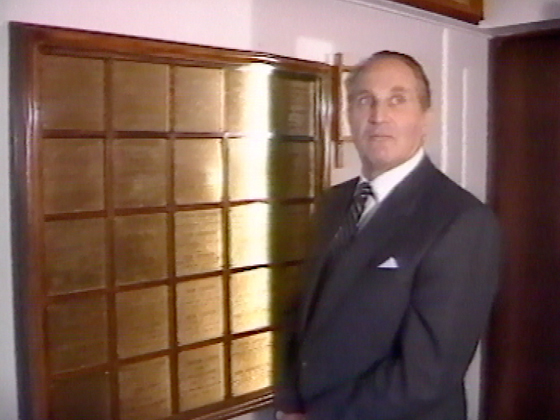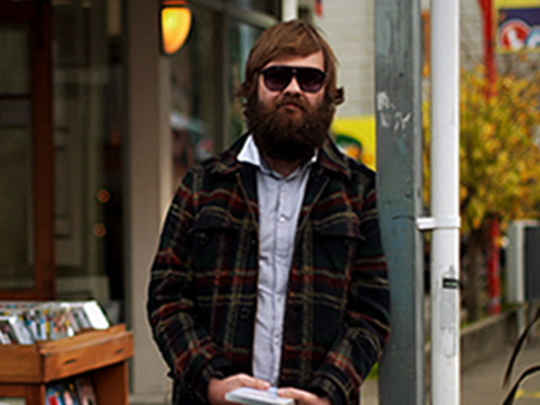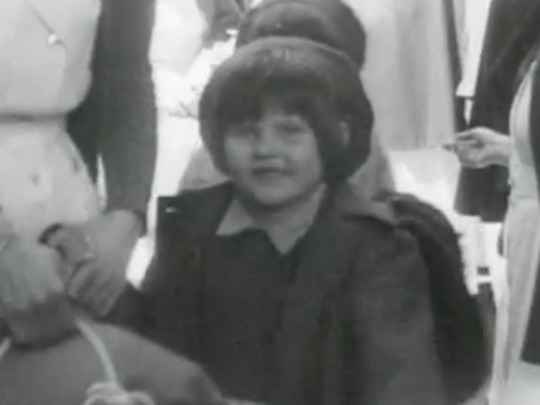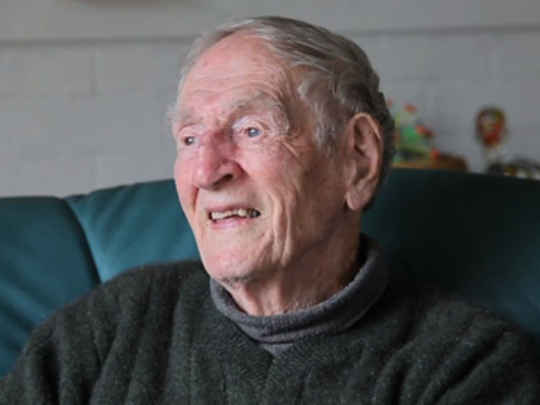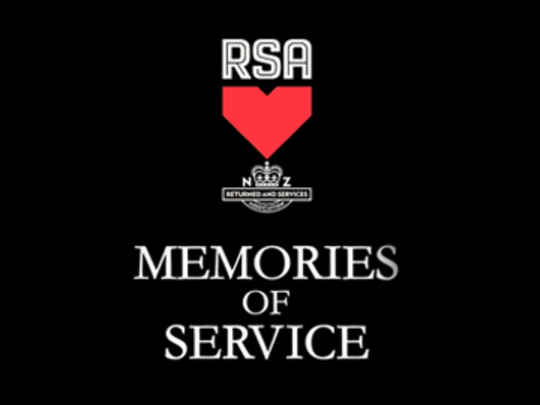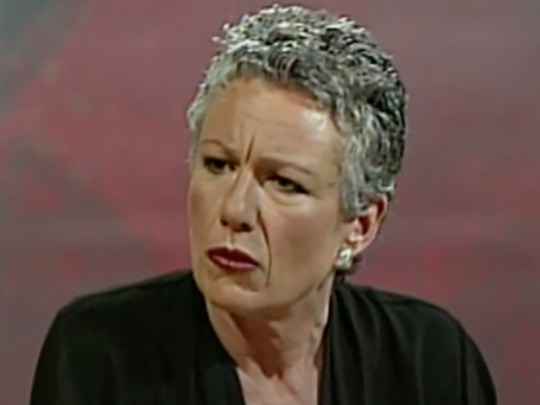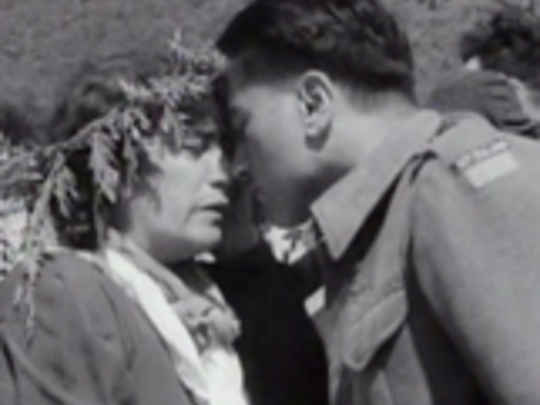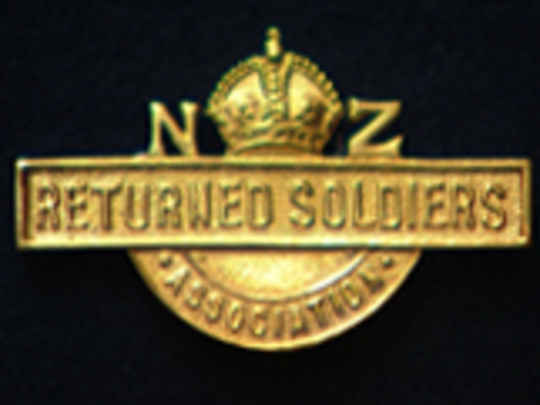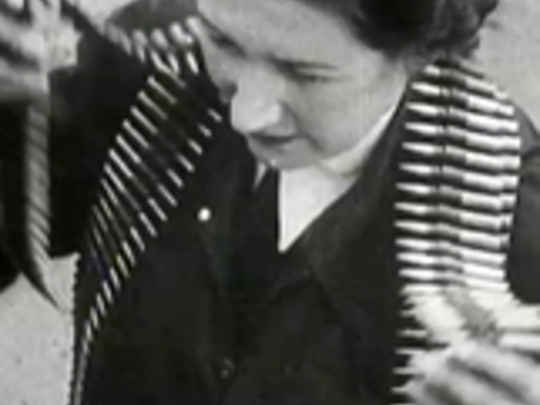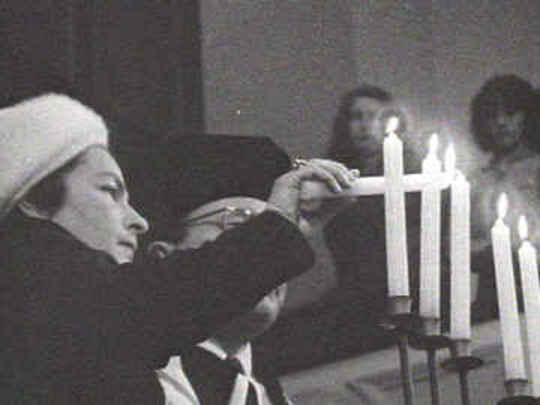We went into showers. Jammed, like flies in a small box. With cold water and disinfectant sprayed over us. It smelled, it stung because we were shaven, and the shaving was not done by professional people, it was done by people in a hurry. They cut you, they nicked you.
– Survivor Fred Silberstein discusses arriving at Auschwitz
The doors got opened. It was during the night — there were spotlights everywhere, SS men with rifles, clubs, German shepherds, making us jump out as quick as possible and form groups. We then got sorted out by physical appearance, left or right. I remember a man said to me "tell them you are older", but I did not know what it meant. Because we did not know where we were, we didn’t know what the outcome could be or would be.
– Survivor Fred Silberstein recalls arriving at Auschwitz on the cattle train
We had to wear the stars. And of course, when you wear a star you are identified who you are. If you are proud of something, it’s alright to be identified. But if you have a mark, that you have to have all the time, people know who you are. You can’t move freely.
– Survivor Hanka Pressburg describes having to wear the Star of David in Prague
You never knew when you came home from school if everybody was there. I recall, I went to school and I got arrested on the way from school going home, and taken to a small camp in the suburbs of Berlin.
– Fred Silberstein recounts being arrested by the Nazis at 14-years-old, and taken to a camp where he stayed for a year
It was often being made very difficult by people in front of the shop handing out leaflets. 'Do not shop in a Jewish shop. They’re our enemies. They’re dirty. They’re dishonest.'
– Survivor Fred Silberstein describes people protesting at the family-owned store
We saw our father two months after, and we didn’t recognise him. Already, his physical points of expression had changed, he was thinner, he was a different colour, he looked untidy, he looked like a beggar.
– Survivor Fred Silberstein describes his father after his arrest, when the Nazis wanted to show what a ‘real Jew’ looked like
We came to Auschwitz and in front of me was a woman with her daughter. She was a very good dressmaker, this woman. So they said to her "Part with your daughter." Which mother can part with their child? None. So she said, "I am not parting with my daughter", so what happened? On the day she was put in a gas chamber and murdered and buried bodies, and we never saw them again.
– Roma Herrmann describes standing in the line of new arrivals at the camp
Very seldom you had a bunk to yourself. You had to share it with one or perhaps two other people, which was totally uncomfortable, which was totally unhygienic, and sometimes you wake up and the body was dead — but you left them there because there was a chance, at times, when your food was dished out to your bunk, and if they counted there would still be three heads. You got three portions. But one didn’t need it. The others shared it.
– Survivor Fred Silberstein describes the horrifying conditions of the barracks
